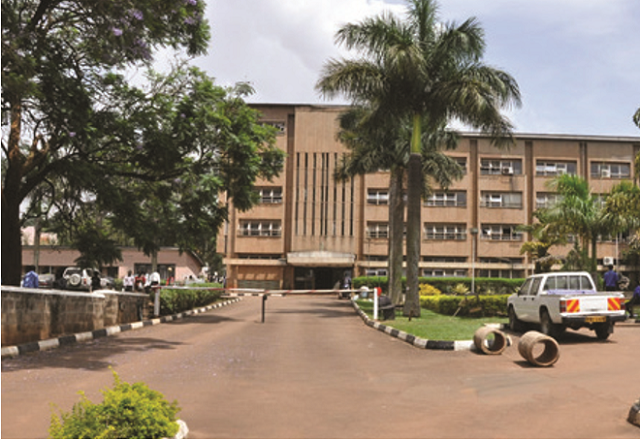Muni University deserves support to grow and positively impact society

Margaret Vuchiri-Alumai
What you need to know:
- The government, administrators, faculty, support staff, students and other stakeholders should all arise to play their pivotal roles.
There is a didactic story, one I love to recount, where a new mother rushes to a doctor after an experienced woman warned that “something was wrong” with the former’s one-year-old child for “delaying to walk”.
After a thorough examination, and finding no fault, the physician jokingly asked the new mother what errands she wanted her baby to run that she was so desperate for the child’s first baby steps.
This story was shared during a brainstorming session about the need for organisations to give new products a lifespan to grow instead of hastily discarding them when revenue growth is not in tandem with projections.
I was yanked to this reality when I read a story in the Daily Monitor that Dr Joyce Moriku, the minister of state for primary education, had “slammed Muni University for graduating only 143 students”.
The newspaper quoted her to have said, thus: “... look at the infrastructure, look at the investment the government has put here … yet we are just passing out a handful of 100 [graduates] as if it’s coming from a nursery school.”
This statement has been interpreted differently by different stakeholders. Some took it as a public scorn of the university officials.
For others, it was a wake-up call and reality check. Another possible takeaway was that the words manifested a mother’s tough love, or a just panic, the kind in the introduction to this article.
Minister Moriku made the comments at Muni University’s 6th graduation ceremony in Arua City on April 6. She questioned how a university with 110 faculty members could just graduate 143. In short, Dr Moriku understandably wants the institution she loves to do better. Granted.
However, a risk arises in her comparison of the graduation numbers of Muni University with that of other public universities such as Makerere, Kyambogo, and Mbarara.
For the record, Makerere, Uganda’s largest public university, is 102-years-old; Mbarara University of Science and Technology (MUST) will make 35 years in October this year; while, Kyambogo University is 21-year-old, drawing on institutional strengths and expertise of three educational institutions amalgamated to form it.
By contrast, Muni University will be 11-years-old in July. If these were humans and on normal (education) progression, Muni would be a preteen and pupil, Kyambogo a final-year undergraduate student, MUST a mid-career professional and Makerere a retiree, if not dead.
This humanisation is to image the difficulty in appreciating the minister’s comparison of the institutions. It does not appear to stand on the leg of logic where success is cumulative with experience.
The more mature an academic institution is, the broader and more developed its academic programmes and, consequently, the higher its student enrolment and graduation rates.
This, however, is not to condone mediocrity, if any, on the part of scholars and managers at Muni University. Rather, it is to inject the necessity to premise commentary on facts so that stakeholders are nudged to act for the common good: shaping a premier university positively influencing society.
The VC, Prof Simon Anguma, explained in an earlier story in the Daily Monitor that Muni University currently runs more than 30 academic programmes, majority being science-leaning.
From the VC’s statement, some academic programs haven’t completed a cycle yet. This suggests admission numbers mirror performance of Senior Six candidates in national examinations.
The university must admit a number of students commensurate with its capacity to produce functional scientists/graduates, meaning impact evaluation should be quality-focused, not predicated on quantity. The noble aspiration is that Muni University alumni positively influence lives, Uganda and the world.
Thus, institutions of higher learning broadly, and universities specifically, should essentialise research and innovation that find solutions to problems confronting us, not piling new layers of misery by churning out multitudes of unemployed and unemployable graduates.
That said, I know minister Moriku is a good-hearted human and able leader. In a sense, this is her child she wants to succeed. And fast. Thus, her tough talk, more than criticism, was likely to chaperon the institution and its leaders on the right course, always.
It’s, therefore, my conviction that we are saying the same things, but differently. The government, administrators, faculty, support staff, students and other stakeholders should all arise to play their pivotal roles so that Muni University shines to benefit us and future generations.
Ms Vuchiri is a journalist and hails from West Nile where Muni Muni University is situated.
[email protected]




